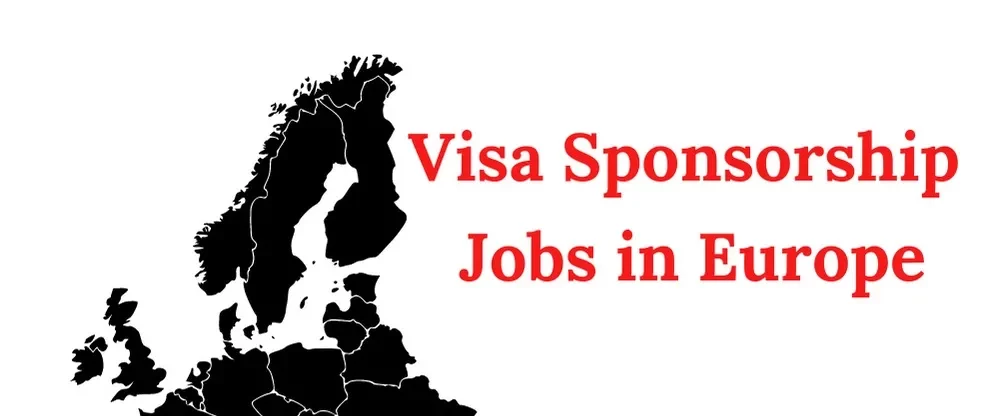With the global economy in a precarious state, many people are looking for stable and secure jobs. If you want to work in a factory in Europe without any hassle, then you need to get a visa sponsorship! With visa sponsorship, you can work in any factory in Europe as long as your employer can provide you with a valid visa.
Factory jobs in Europe allow gaining a foothold in the workforce. With the global economy constantly changing, job seekers need to be aware of what’s happening in their industries and regions so that they can make the best decisions for their careers. Read on to understand what a factory job entails and how to find one in Europe with visa sponsorship.
What are Factory Jobs?
Factory jobs are those in which the employee works with machinery or tools. They are a great way to get started in the workforce. They offer stability and a good wage, and they can be a great way to learn manufacturing skills. Many factory jobs in Europe require only a high school diploma or equivalent, so anyone interested in pursuing a career in manufacturing can start with these jobs.
The Different Types of Factories Jobs in Europe
Factory jobs in Europe offer many opportunities for foreigners to work in a new country and make a decent income. Here are four types of factory jobs in Europe that foreigners should be aware of:
1. Agricultural Jobs: Agricultural factories are located all over Europe, and they employ both foreign and local workers. These factories produce crops, dairy products, meat, and other food items. The jobs can be physically demanding, but they also offer good pay and benefits.
2. Apparel Manufacturing: Apparel manufacturing is one of the fastest-growing sectors in the European economy. Many companies are looking for skilled labour to help them produce clothing for consumers all over the world. This type of factory job is good for foreigners who have experience working with fabrics and sewing machines.
3. Automotive Manufacturing: Automotive manufacturing is another growing sector in the European economy. Many car companies are looking for workers to help them design new vehicles, build them, and test them before they go on sale. This type of factory job is good for people with mechanical skills and experience working with cars and engines.
The Different Types of Factories in Europe
There are many different types of factories in Europe. Here’s a breakdown of the most common types of factories found in Europe:
1. Car Manufacturers: Europe is home to some of the world’s leading car manufacturers, including Volkswagen, Renault, and Nissan. These companies rely heavily on factory jobs to produce their vehicles. Car manufacturing is a highly complex process, and the factories that produce cars need a large number of skilled workers to handle everything from manufacturing to shipping and customer service.
2. Electronics Manufacturing: Electronics manufacturing is another popular industry in Europe. Major players like Samsung, Apple, and Dell all source components for their products from European electronics manufacturers. This type of factory is especially beneficial for small businesses that can’t afford to outsource their production.
3. Pharmaceuticals: Pharmaceuticals are another major industry that relies on factory jobs. Major drug companies like Pfizer and Merck have hundreds of factories around the world, and they need workers to produce the drugs they sell. Pharmaceutical manufacturing is a very complex process, and the factories need a high level of automation to keep up with the high levels of production required.
Qualification/Requirements
There are a few things you’ll need to work in a factory: a strong back, good vision, and a lot of patience.
Factory jobs in Europe often require long hours and regular travel. You may be required to work odd hours or weekends, and you may be working with high-pressure deadlines. Be prepared for strenuous physical activity, loud noise levels, and hazardous machinery.
Would You Like To Apply For This Jobs/Sponsorship?
Enter Your Email Address HERE & You Will Receive a Notification About Your Application. If it shows "Subscribed" CLICK HERE to follow on Telegram for updatesFactory jobs in Europe are typically not entry-level positions. The qualifications needed to work in a factory in Europe vary, but many jobs require a degree or equivalent experience. Minimum requirements for most factory jobs include strong math and science skills and a basic understanding of mechanics and how machines work. Some factories also require workers to have specific skills such as welding or carpentry.
How to Find a Factory Job in Europe with Visa Sponsorship
Finding a factory job in Europe can be a daunting task. Here is a guide on how to find a factory job in Europe with Visa Sponsorship.
The first step is to research the available factories in your area. Many online resources can help, such as careers websites and job search engines. Once you have found a few potential factories, send them an email introducing yourself and asking about their hiring requirements. Make sure to include your resume, cover letter, and any other relevant information. Most factories will contact you if they are interested in speaking with you further.
If you are not able to find a job through traditional methods, you may be eligible for Visa Sponsorship. This program offers visa-free entry to selected countries for individuals who are looking for employment in certain industries, such as manufacturing. To qualify, you must have a valid job offer from a local factory and meet all other requirements of the program. If you are interested in applying for Visa Sponsorship, visit the website of the European Union’s Employment Service (EURES).
Application Process for a Factory Job in Europe with Visa Sponsorship
Factory jobs in Europe with Visa sponsorship are becoming increasingly popular, as the continent continues to experience high unemployment rates. Candidates typically need to have a valid passport, a valid visa, and proof of employment. Some sponsors also require candidates to have health insurance.
First, contact your nearest embassy or consulate in the country in which you would like to work. These offices can provide you with information on the application process and help to identify any paperwork that may be required.
Once you have gathered all of the necessary information, begin the application process by filling out an online application form. In addition to completing the form, you will need to provide evidence of your qualifications and experience, as well as copies of your identification cards and passports.
If you are successful in your application, you will then be invited to attend an interview. During this meeting, your employer will ask you questions about your skills and experience, as well as test your abilities to work under pressure.
If you are approved for a job with Visa sponsorship, you will then need to obtain a residency permit. This permit will allow you to stay in the country while you are working, and it may take up to six months to process. Once you have received your residency permit, arrival visa, and work permit, you will be ready to begin your new job.
FAQs
What are the benefits of having a factory job in Europe?
The benefits of having a factory job in Europe generally include – great pay and benefits, predictable hours, and holidays, and good career prospects.
Can I work as a factory worker in Europe without a Visa?
Yes, many factory workers in Europe work without visas. However, some countries (such as the UK) require a Work Visa to work in a factory.
How much do factory workers earn in Europe?
Factory workers in Europe generally earn excellent pay and benefits. In general, the median salary for factory workers ranges from €20,000 to €50,000 per year.
What is the average workweek for factory workers in Europe?
The average workweek for factory workers in Europe is typically 40 hours but can vary depending on the industry.
Conclusion
Factory jobs in Europe can offer a lot of benefits, such as stable employment with good pay and flexible hours. In addition, many companies in Europe offer social insurance schemes that make it easier for employees to receive medical assistance if they need it.
As long as you are prepared to move around a bit and learn some new languages, factory jobs in Europe are an excellent way to start your career or take care of your financial needs. If you are uncertain about what type of job is best for you, be sure to conduct the necessary research.





I am interested